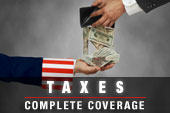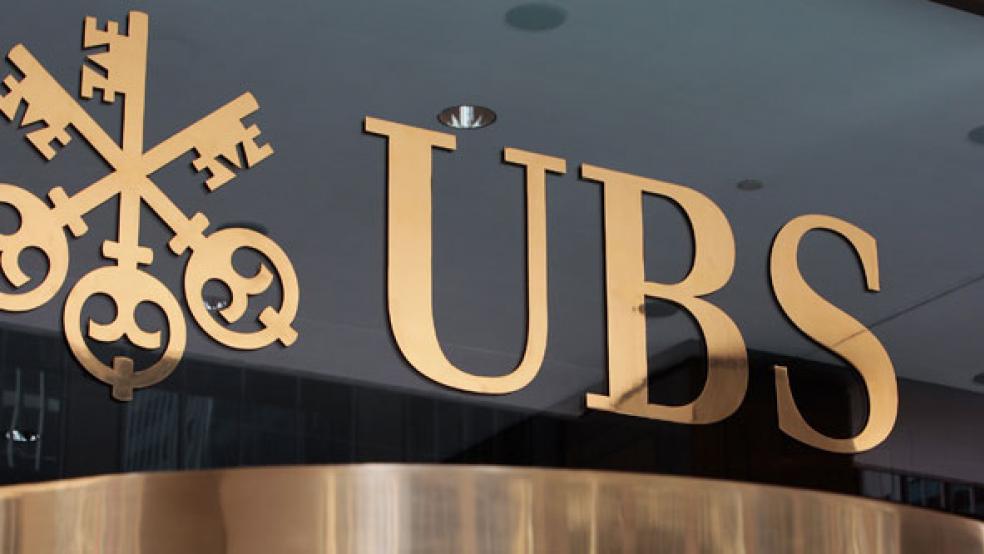Yes, it’s believed to be the largest whistleblowing payout in history: Bradley Birkenfeld, just weeks after being released from prison, has been awarded $104 million by the Internal Revenue Service for exposing a tax fraud case against Swiss banking giant UBS AG. The IRS said in a statement that it “believes that the whistleblower statute provides a valuable tool to combat tax non-compliance, and this award reflects our commitment to the law.”

But this case is about much more than one man’s sudden wealth or one whistleblowing former banker going from the penitentiary to the metaphorical penthouse. Its significance goes far beyond one payout, one man or one bank. Advocates who work to protect whistleblowers hope that the nine-figure award announced yesterday will carry meaning not just for the Treasury’s coffers but for would-be whistleblowers who might have been reluctant to come forward to report waste, fraud and abuse.
RELATED: Riches or Retaliation Await Whistleblowers
First, the basic story: Birkenfeld, 47, had been an executive at the UBS private bank in Geneva, Switzerland. He stepped forward in 2007 to provide information to the Justice Department about offshore tax shelters used by the bank to hide money from the IRS. His whistleblowing brought to light specific practices that cheat the U.S. Treasury out of an estimated $100 billion a year.
Birkenfeld’s insider information ultimately led UBS to enter a deferred prosecution agreement with the government in which it agreed to pay $780 million in fines, penalties, interest and restitution. The bank also agreed to provide the government with the identities and account information for more than 4,400 other customers thought to have violated the law. The famed secrecy of Swiss banks had been punctured. “The whole Swiss banking system is under investigation and may get cracked thanks to Mr. Birkenfeld and the processes he initiated,” one of his attorneys, Stephen Kohn, said Tuesday. Since Birkenfeld blew the whistle, more than 33,000 Americans have come forward to voluntarily disclose offshore accounts, according to Bloomberg News.
HARDLY A MODEL CITIZEN
But the whistleblower wasn’t exactly a sterling character himself. He eventually admitted to buying diamonds in Europe and smuggling them back to California in a toothpaste tube as part of an effort to conceal $200 million in assets for a client, billionaire real estate tycoon Igor Olenicoff, who otherwise would have owed $7.2 million in taxes. (Olenicoff, by the way, reportedly got two years probation and was ordered to pay $52 million in back taxes, penalties and interest.) “While at UBS, Birkenfeld routinely traveled to and had contacts within the United States in an effort to assist wealthy Americans [with concealing] their ownership in assets held offshore and therefore evade the payment of taxes on the income generated on the money hidden offshore,” the Justice Department said later.
The government has long sought to encourage whistleblowers to report tax fraud. It has offered financial incentives for such information since at least 1867, but the whistleblower program has undergone significant changes over time. In 2006, the program was overhauled under legislation written by Republican Sen. Chuck Grassley of Iowa. The new law aimed to add some money and muscle to the whistleblower program to encourage more people to come forward. Among other things, it called for whistleblowers to get between 15 percent and 30 percent of any taxes recovered in cases of tax underpayments totaling more than $2 million.
The law also lifted a $10 million cap on awards that had been in place. And it said that the IRS would deny an award in cases where the whistleblower is convicted of criminal conduct in planning and initiating the tax fraud. Birkenfeld filed a claim to get his award under that 2006 law.
But Grassley and others have repeatedly criticized the IRS for handling cases far too slowly under the updated law. The IRS’s Whistleblower Office had received more than 1,300 submissions for the program since 2007, according to a Government Accountability Office report from August 2011. Yet the IRS process for dealing with those submissions can take more than seven years.
“The lack of progress is demoralizing whistleblowers so that I am now concerned that whistleblowers will stop coming forward,” Grassley wrote in a letter to Treasury Secretary Timothy Geithner and IRS Commissioner Doug Shulman earlier this year. As the number of whistleblower cases declined, the IRS whistleblower office collected $48 million in taxes in fiscal 2011, down from $464 million the previous year, the agency reported to Congress in June. Steven Miller, the IRS deputy commissioner for services and enforcement, said in a June memo that the agency was working on a “comprehensive review of operating guidelines and procedures” for the whistleblower program.
If potential whistleblowers were turned off by dealing with the IRS, the large Birkenfeld award could certainly provide incentive for them to come forward once again. Whistleblower advocates and experts who study the issue say the IRS decision sends the right message. And in case anyone asks why the government should have to pay private taxpayers to help the IRS do its job, University of Tennessee College of Law professor Michelle Kwon says the right question to ask is whether the IRS could have figured the Swiss tax evasion schemes out on its own – and it could not have. The award, Kwon says, rewards Birkenfeld for helping the IRS recover funds it would not have otherwise.
Grassley agreed. “An award of $104 million is obviously a great deal of money, but billions of dollars in taxes owed will be collected that otherwise would not have been paid as a result of the whistleblower information,” the senator said in a statement following the announcement. “If the IRS is serious about encouraging future whistleblowers, it needs to continue to honor the spirit and intent of the law and issue awards in a timely manner.”
Birkenfeld’s lawyers pointed out that his actions have helped the IRS recover billions more from tax evaders, above and beyond the $780 million UBS agreed to pay. “With $5 billion collected so far, the award to Brad is less than two cents on the dollar for every dollar collected by the Treasury, which probably represents the greatest return of investment for the U.S. government in its history,” said attorney Dean Zerbe of the law firm Zerbe, Fingeret, Frank & Jadav, who also works for the National Whistleblowers Center.
And for anyone still concerned that a $104 million payout might be too rich, consider this: Birkenfeld’s $104 million award is reportedly taxable.





